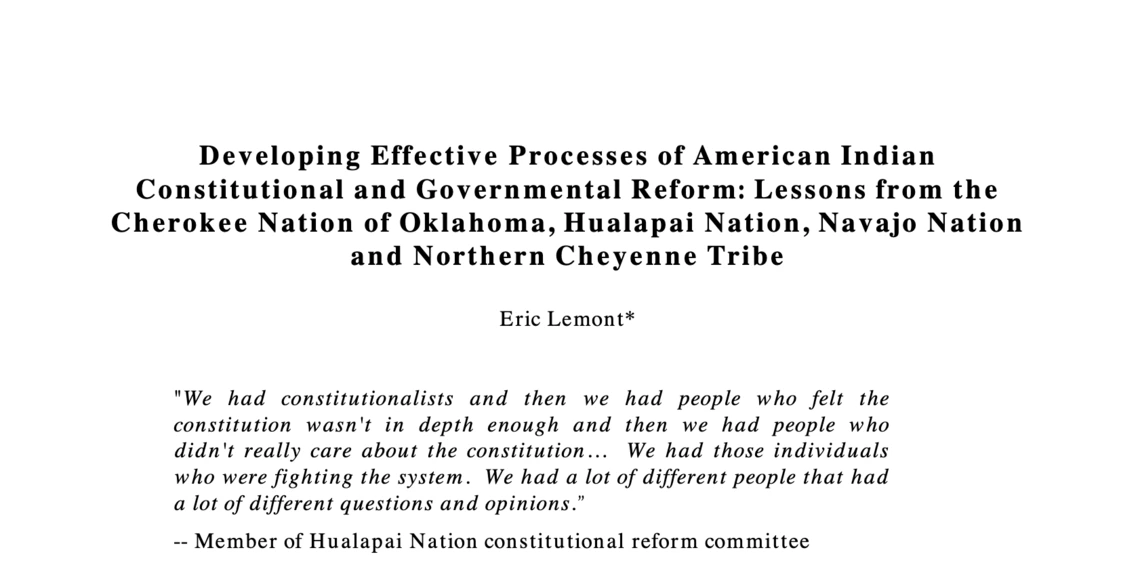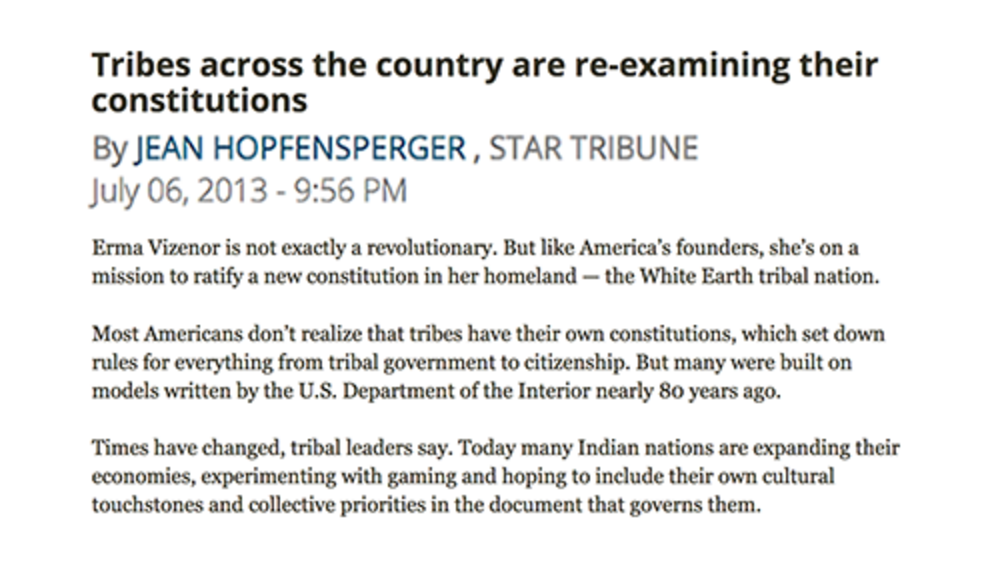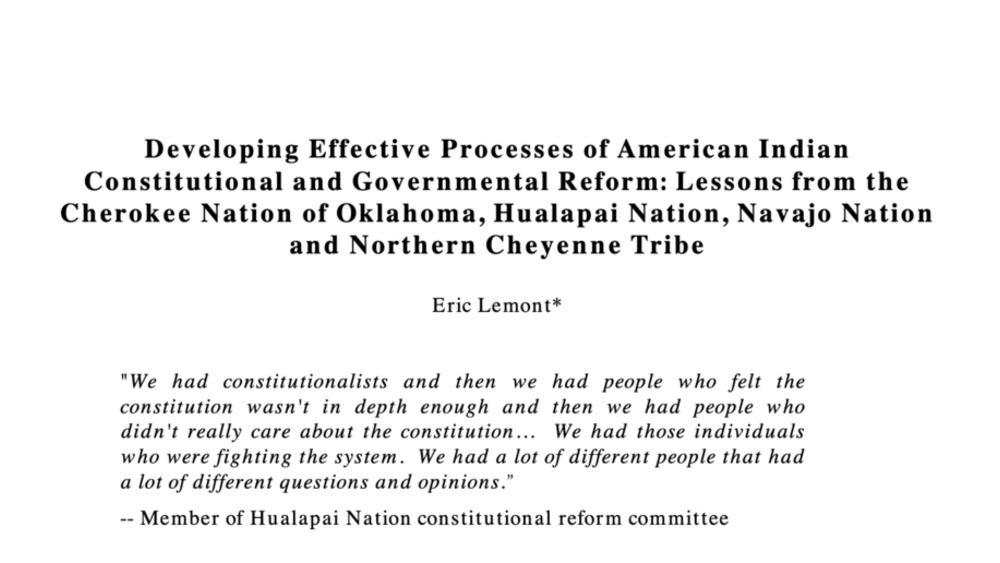Over the past several decades, numerous American Indian nations have been revising their constitutions to create more legitimate, effective and culturally-appropriate governments. However, successful processes of reform have been hindered by a variety of universal challenges, including political obstacles to changing the status quo, difficulties in achieving effective citizen participation and insufficient mechanisms for resolving conflict. Drawing from the recent constitutional and governmental reform experiences of the Cherokee Nation of Oklahoma, the Hualapai Nation, the Navajo Nation, and the Northern Cheyenne Tribe, this paper discusses how four American Indian nations addressed these challenges. The four nations’ experiences demonstrate how an increased reliance on tribal institutions such as constitutional reform commissions, constitutional conventions and tribal courts – combined with a focus on short and long-term programs of civic education – can help American Indian nations realize their goals of creating more effective and legitimate constitutions.
Additional Information
Lemont, Eric. Developing Effective Processes of American Indian Constitutional and Governmental Reform: Lessons from the Cherokee Nation of Oklahoma, Hualapai Nation, Navajo Nation and Northern Cheyenne Tribe. Harvard Project on American Indian Economic Development. John F. Kennedy School of Government. 2002. Paper. (https://indigenousgov.hks.harvard.edu/publications/report-best-practice…, accessed June 4, 2024)




